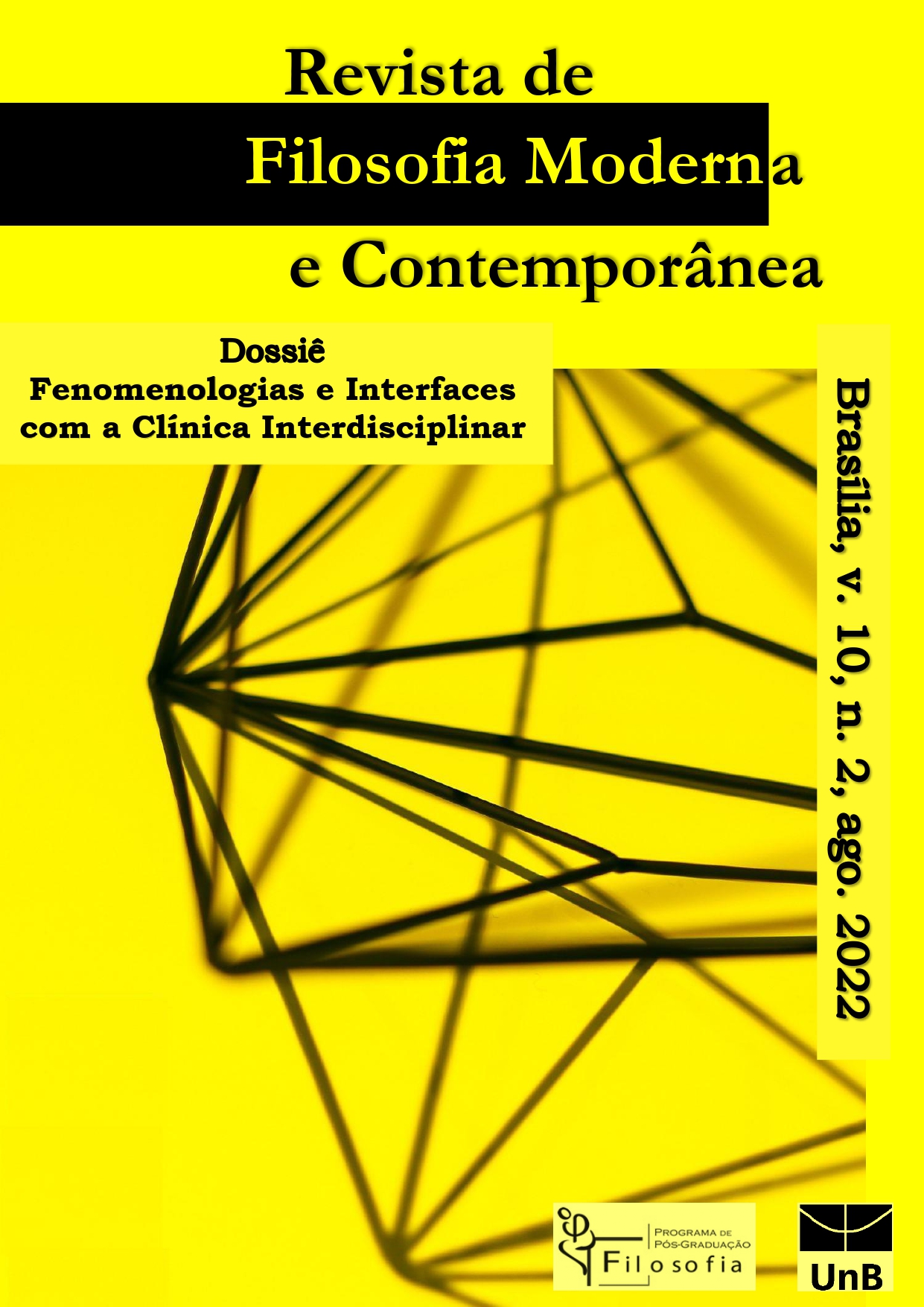The Possibility of Grasping the Essentiality of Things
DOI:
https://doi.org/10.26512/rfmc.v10i2.48525Keywords:
Essence. Intentional Experience. Phenomenological Reduction.Abstract
It is intended to problematize the concept of essence, based on Edmundo Huserl’s menology, which is directly related to the zero of knowledge, which takes place from the process of époche, or suspension of the degree of judgment, to apprehend the knowledge of to intentional experiences (Husserl, 1907). Would we be able to reach the zero degree of knowledge? Would it be possible to apprehend the essence of things? Would the phenomenological method give us elements that allow it to aim at things? Would we be able to overcome, through suspension of judgments, the concepts that we use on a daily basis? What essence would this be, when we are formed and conformed to the concept of essence, as a pure form deriving from the Platonic doctrine (Plato, 1972). What conclusion can we reach on this matter? And what are the consequences for a rigorous reading of the concept of essence in Husserl? This is our intention in this article, as a reflective challenge.
References
ARISTÓTELES. Metafísica. Trad. de Marcelo Perine. São Paulo: Loyola, 2002.
DOEDERLEIN, J. O livro dos ressignificados. São Paulo: Editora Paralela, 2017.
HUSSERL, E. Investigaciones Lógicas 2. Madrid: Alianza Editorial, 1999.
HUSSERL, E. A Ideia da fenomenologia. Lisboa: Edições 70, 1990.
HUSSERL, E. As Conferências de Paris. Lisboa: Edições 70, 1992.
JAEGER, W. La Teología de los primeiros filósofos griegos. Máxico: Fondo de Cultura Economica, 2003.
PLATÃO. A República. Ed. UFPa, 2016.
XIRAU, J., La Filosofia de Husserl. Buenos Aires: Ediciones Troquel, 1966.
Downloads
Published
Issue
Section
License
Copyright (c) 2022 Journal of Modern and Contemporary Philosophy

This work is licensed under a Creative Commons Attribution-NonCommercial-NoDerivatives 4.0 International License.
Copyright for articles published in this journal is retained by the authors, with first publication rights granted to the journal. By virtue of their appearance in this open access journal, articles are free to use, with proper attribution, in educational and other non-commercial settings.


